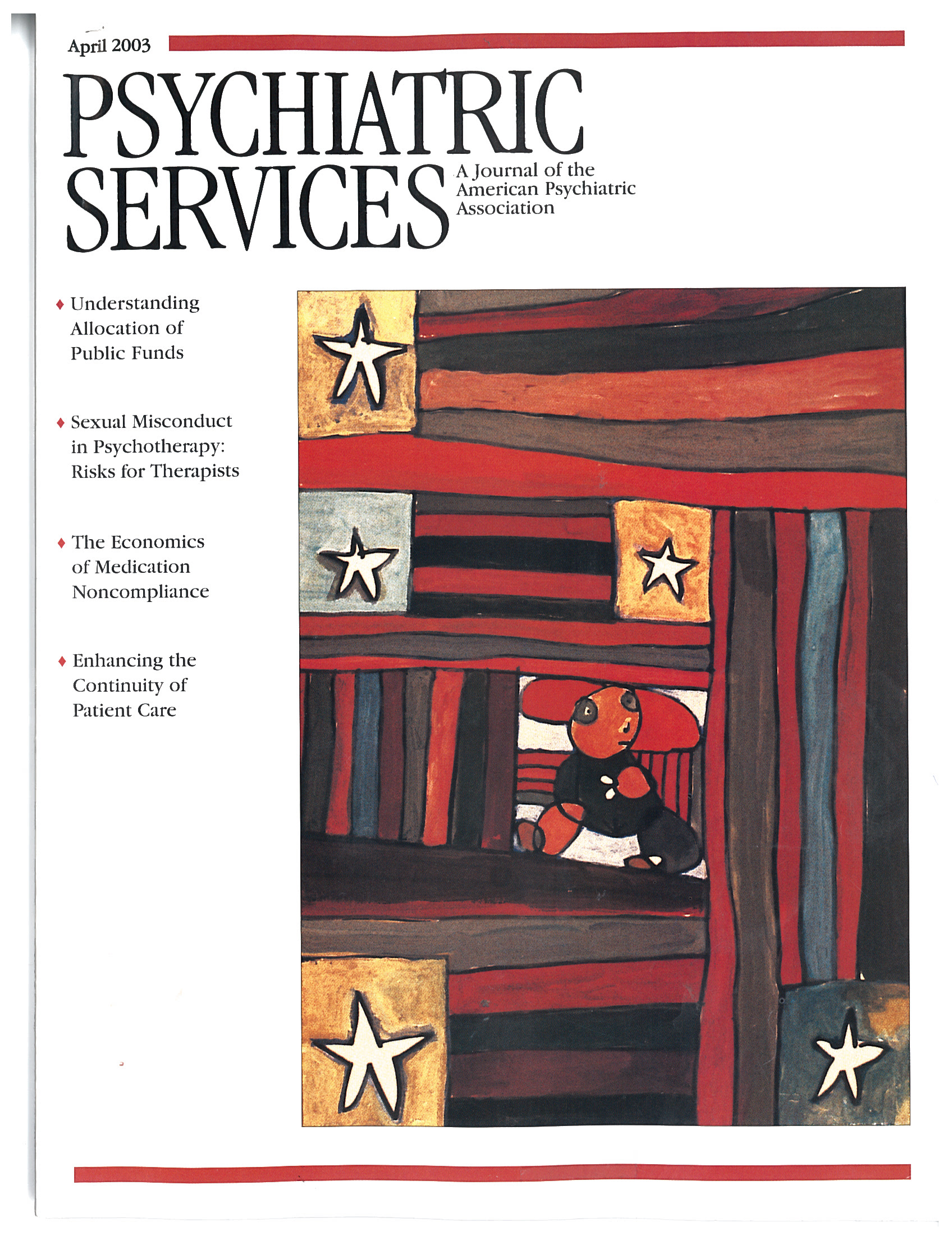To The Editor: Patients with dual diagnoses—a psychiatric disorder and a substance use disorder—have a high level of noncompliance with treatment, and they are less likely to be compliant with aftercare than patients with a single psychiatric or substance use diagnosis (
1,
2). Although state-of-the-art treatment for dual diagnosis patients is an integrated substance abuse-mental health treatment program (
3), few urban public facilities are able to provide such extensive services. Most mental health programs have partnered with substance abuse treatment programs to provide services for these patients (
4).
Engaging dual diagnosis patients in treatment remains an important goal, and the few studies addressing the process of engagement have focused mainly on patients discharged from psychiatric inpatient settings (
1,
2,
5). Patients with dual diagnosis often obtain outpatient treatment after discharge from psychiatric emergency departments; however, compliance with aftercare in this patient group has rarely been studied. We hypothesized that compliance with outpatient mental health treatment would differ from compliance with substance abuse treatment among patients with dual diagnosis after discharge from our psychiatric emergency department.
Patients eligible for the study, which was approved by the hospital's institutional review board, were those who were evaluated in the psychiatric emergency department of a public hospital in Los Angeles County between March and August 2000. Evaluation records were reviewed, and patients were included in the study if they met criteria for a DSM-IV axis I psychiatric disorder as well as DSM-IV criteria for a substance use disorder. Aftercare plans for patients with dual diagnosis included referral to an outpatient mental health care provider or a substance abuse treatment program or both. We attempted to contact all discharged patients within 30 days after discharge. If the patient reported having attended at least one treatment session, the transition was considered successful.
Over the six-month study period, 659 of the 1,498 patients seen in the emergency department (44 percent) met criteria for a dual diagnosis. A total of 264 of the 659 patients (40 percent) had a schizophrenia spectrum disorder, 263 (40 percent) had a mood disorder, and 26 (4 percent) had an anxiety disorder. A total of 230 patients (35 percent) agreed to voluntary urine toxicology testing. Cocaine and marijuana were most frequently detected (23 patients, or 10 percent), followed by amphetamines (18 patients, or 8 percent), and opiates (five patients, or 2 percent). A total of 237 patients (36 percent) had used alcohol in the 24 hours before admission. Alcohol use was assessed by self-report or breath alcohol detection.
A total of 422 patients (64 percent) were discharged from the hospital, and we were able to contact 232 (55 percent of the discharged group) within a month after discharge. As hypothesized, patients were more likely to comply with mental health treatment than with substance abuse treatment: 102 patients (44 percent) attended at least one mental health treatment session, and 37 patients (16 percent) attended at least one substance abuse treatment session (χ2=24.6, df=1, p<.001).
In summary, we found that two-thirds of patients with dual diagnosis who were discharged from our emergency department did not comply with follow-up care. Those who received follow-up care were more likely to obtain mental health treatment than substance abuse treatment. We do not know the compliance rate among the 190 patients (55 percent of those discharged) whom we were unable to contact; however, we assume that the rate would be even lower than the rate in the contacted group. Our results confirmed that dual diagnosis patients discharged from psychiatric emergency departments have poor compliance with aftercare, especially with follow-up substance abuse treatment.

